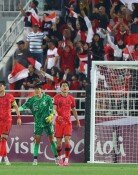[Opinion] Poisoning
The Great Kremlin Palace, the center of Russias power, is in a sense, the House of Corpses. In the Red Square that stands in front of the Kremlin Palace lies the mummy of Bolshevik Revolution leader Lenin, and the remains of Imperial Russian aristocrats are enshrined in every corner of the palace. Heavy metal such as mercury, lead, and arsenic were discovered in some of the remains through recent results of analysis conducted by scientists from the Russian Academy of Science. This discovery may serve as a clue on which to base the argument that the aristocrats were poisoned amid a fierce, secret feud within the palace.
In fact, there have been constant rumors about poisoning within and outside the Great Kremlin Palace for more than a millennium. Aside from the Imperial Russia era, after the former Soviet Union and even into the modern history, poisoning has been frequently used as means to eliminate competitors or political opponents secretly. The theory that writer Maxim Gorky, the founder of socialist realism, was poisoned under the direction of the dictator Stalin has almost become a hard fact. There are even speculations that Stalin, who was the synonym for a ruthless leader, was poisoned by his right-hand man, the head of the secret police Lavrenti Beria.
Poisoning was not only a means to power struggle but a tool in fierce espionage during the Cold War. Oleg Kalugin, a former general of the notorious KGB who exiled to the U.S., testified, Poison was regularly used in our operations back then. It did not change much after the Cold War ended. How did the Russian authorities get rid of the Chechen rebel leader Amir Khattab? Poisoning. In response, the Chechen rebels attempted to poison the pro-Russian prime minister.
Poisoning is not an exception in Korean history as well. It is well-known fact that the reformist King Jeongjo was poisoned by conservative forces. The perpetrators of poisoning always tried to hide the fact because they could not avoid strong criticism if the nasty, poisoning conspiracy was exposed. The rumor that King Gojong had been poisoned also became one of the causes for the March 1st Movement. Ukrainian opposition presidential candidate Viktor Yushchenko, who has recently been poisoned amid the presidential election, lost his handsome, movie star looks, but he gained the publics support instead. Would the repeat presidential run-off on December 26 in Ukraine serve as a warning against forces that attempt to poison political opponents and change the history?
Kim Ki-hyun, Moscow Correspondent, kimkihy@donga.com







